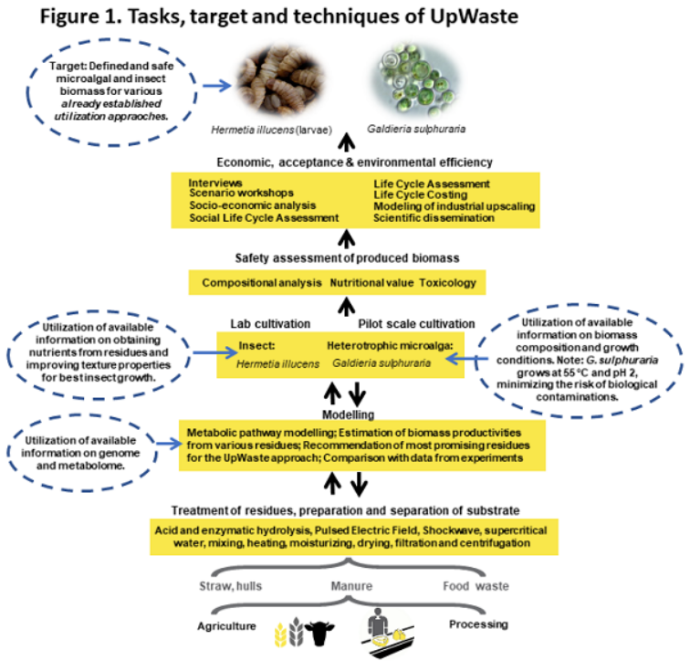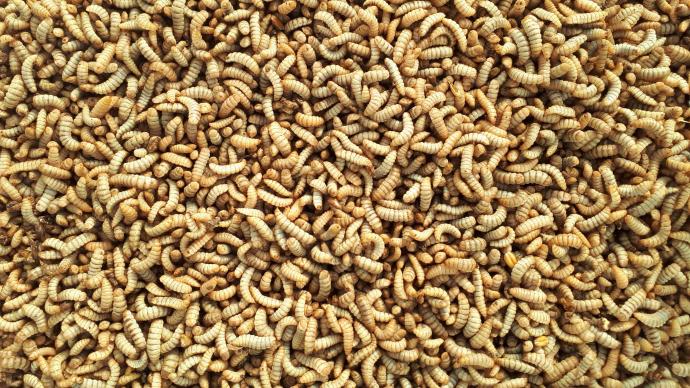Black soldier fly
This insect is popular due to its ability to convert low-value biomass (e.g. waste) into high-value components such as ...
The UpWaste project focusses on the development of a flexible and modular system for the conversion of agricultural residues into heterotrophic microalgal (Galdieria sulphuraria) and insect (black soldier fly, Hermetia illucens) biomass. It relies on metabolic modelling with experimental calibration at lab and pilot scales to create an industrial blueprint of the UpWaste modular biorefinery system application. Such a system will create new market opportunities and determine the feasibility of new products and services generated through integrated food and non-food systems.

The UpWaste system converts residues, which are diverse and difficult to characterize (e.g. manure, food waste, straw, and hull), into high-quality biomass with defined composition. Following cascading, biomass will serve as a substrate for the development of various products ranging from food to chemicals by relevant industries (creation of innovation potential for the associated industrial stakeholders). Further focus is on the detection and avoidance of biological contaminations for assuring the safety of produced biomass and even identifying the potential for the application as food and feed.

The UpWaste project is a collaboration between 6 different European partners. The project is led by the German Institute of Food Technology (DIL).
UpWaste is funded within the FACCE SURPLUS (Sustainable and Resilient agriculture for food and non-food systems) collaboration, which is committed to improve collaboration across the European Research Area in the range of diverse, but integrated, food and non-food biomass production and transformation systems, including biorefining.





